Generally you do have 2 options:
1. As already mentioned, use an animation-list and just swap pictures.
This one is probably the easier solution, since they can relatively easy be animated with AnimationDrawable. The only drawback would be that you need at least 16 images (in all resolutions) for your given result.
2. Use a custom drawable.
This is the more complicated approach. You will have to do the drawing and animating yourself, which is a hard task for most people with little good documentation.
Therefore you have to extends Drawable implements Runnable, Animatable and supply some good implementations.
The following is a basic impelmentation, calculating the positions once, then drawing them. The animation (the size of the individual circles) can and should be further tweaked ;)
Result in 3 variants:
public class RectProgressDrawable extends Drawable implements Runnable, Animatable {
private static final long FRAME_DELAY = 1000 / 60;
private static final String TAG = "RectProgressDrawable";
private boolean mRunning = false;
private long mStartTime;
private int mDuration = 1000;
private Paint mPaint;
private float[] posX;
private float[] posY;
private float mSize;
private int mPoints = 5;
/**
* The padding in px.
*/
private int mPadding = 4;
private int mAnimatedPoints = 5;
public void setPoints(int points) {
if (points != mPoints) {
mPoints = points;
init();
}
}
private void init() {
if (mPaint == null) {
mPaint = new Paint();
mPaint.setColor(Color.WHITE);
mPaint.setAntiAlias(true);
mPaint.setStyle(Paint.Style.FILL);
}
posX = new float[(mPoints - 1) * 4];
posY = new float[(mPoints - 1) * 4];
Rect bounds = new Rect();
bounds.set(getBounds());
bounds.inset(mPadding, mPadding);
float cellWidth = ((float) bounds.width()) / ((float) mPoints);
float cellHeight = ((float) bounds.height()) / ((float) mPoints);
float min = Math.min(cellWidth, cellHeight);
mSize = min / (mPoints - 1);
for (int i = 0; i < mPoints; i++) { // top row
posX[i] = bounds.left + cellWidth * (float) i + cellWidth / 2;
posY[i] = bounds.top + cellHeight / 2;
}
for (int i = 0; i < mPoints - 2; i++) { // sides
// right side top bottom
posX[mPoints + i] = bounds.left + cellWidth * (mPoints - 1) + cellWidth / 2;
posY[mPoints + i] = bounds.top + cellHeight * (i + 1) + cellHeight / 2;
//left side bottom top
posX[3 * mPoints - 2 + i] = bounds.left + cellWidth / 2;
posY[3 * mPoints - 2 + i] = bounds.top + cellHeight * (mPoints - 2 - i) + cellHeight / 2;
}
for (int i = 0; i < mPoints; i++) { // bottom from right to left
posX[2 * mPoints - 2 + i] = bounds.left + cellWidth * (mPoints - 1 - i) + cellWidth / 2;
posY[2 * mPoints - 2 + i] = bounds.top + cellHeight * (mPoints - 1) + cellHeight / 2;
}
}
@Override
public void draw(Canvas canvas) {
if (isRunning()) {
// animation in progress
final int save = canvas.save();
long timeDiff = SystemClock.uptimeMillis() - mStartTime;
float progress = ((float) timeDiff) / ((float) mDuration); // 0..1
int level = ((int) (progress * posX.length)) % posX.length; // current value 0..posX.length
for (int i = 0; i < posX.length; i++) {
if ((i >= level && i < level + mAnimatedPoints) || level + mAnimatedPoints > posX.length && i < (level + mAnimatedPoints) % posX.length) {
float num = (i - level + posX.length) % posX.length; // 0..5
float size = mSize * (1 + (num * (1f / mAnimatedPoints)));
float sizeNext = mSize * (1 + ((num + 1) * (1f / mAnimatedPoints)));
float levelProgress = progress * posX.length - (int) (progress * posX.length);
float currentSize;
if (num == (mAnimatedPoints - 1)) {
// grow to next size
currentSize = mSize + (size - mSize) * levelProgress;
} else {
// shrink
currentSize = size + (sizeNext - size) * (1 - levelProgress);
}
canvas.drawCircle(posX[i], posY[i], currentSize, mPaint);
} else {
canvas.drawCircle(posX[i], posY[i], mSize, mPaint);
}
}
canvas.restoreToCount(save);
} else {
// draw normal
for (int i = 0; i < posX.length; i++) {
canvas.drawCircle(posX[i], posY[i], mSize, mPaint);
}
}
}
@Override
public void setBounds(int left, int top, int right, int bottom) {
super.setBounds(left, top, right, bottom);
init();
}
@Override
public void setAlpha(int alpha) {
}
@Override
public void setColorFilter(ColorFilter colorFilter) {
}
@Override
public int getOpacity() {
return 0;
}
@Override
public void start() {
if (mRunning) stop();
mRunning = true;
mStartTime = SystemClock.uptimeMillis();
invalidateSelf();
scheduleSelf(this, SystemClock.uptimeMillis() + FRAME_DELAY);
}
@Override
public void stop() {
unscheduleSelf(this);
mRunning = false;
}
@Override
public boolean isRunning() {
return mRunning;
}
@Override
public void run() {
invalidateSelf();
long uptimeMillis = SystemClock.uptimeMillis();
if (uptimeMillis + FRAME_DELAY < mStartTime + mDuration) {
scheduleSelf(this, uptimeMillis + FRAME_DELAY);
} else {
mRunning = false;
start();
}
}
public void setAnimatedPoints(int animatedPoints) {
mAnimatedPoints = animatedPoints;
}
}
Use with
ProgressBar progressBar = (ProgressBar) findViewById(R.id.progress);
progressBar.setIndeterminateDrawable(new RectProgressDrawable());
progressBar.setIndeterminate(true);
Alternatively you can see the full source code in a working project here
